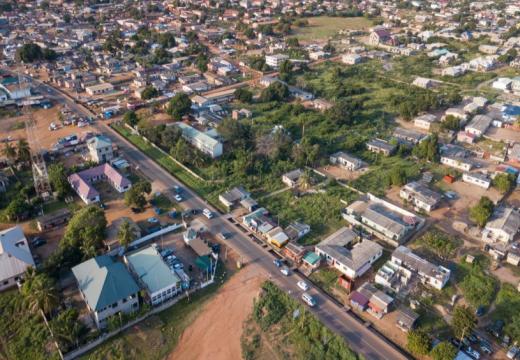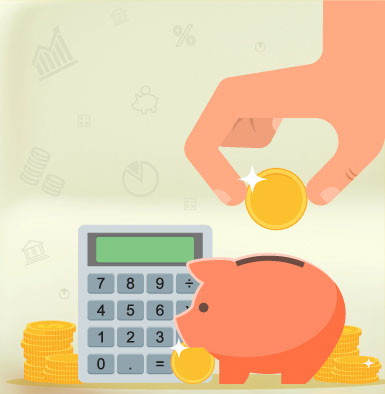Quarterly Contributions Of Real Estate To GDP In Ghana for 2022
Quarterly Contributions Of Real Estate To GDP In Ghana for 2022
- by PropHunt Admin
- On 02-11-2022
- at 9:44 AM

The real estate industry experienced a negative performance to the national Gross Domestic Product (GDP) in the second quarter of 2022. This is the second time the real estate industry has declined in the computation of the national GDP.
The contribution of the real estate industry to the Gross Domestic Product (GDP) is estimated by the Ghana Statistical Service to be a negative 1.5% of the real GDP growth for the second quarter of 2022.
Real GDP growth in Ghana increased by 4.8 percent in the second quarter of 2022 compared to the 4.2 percent growth seen in the same period of 2021 continuing a long-standing standard practice in national income computations.
In quarter two of 2022, real estate in Ghana saw a decline of around 8,501,900 Ghanaian cedis (GHS), roughly 607,324.55 thousand U.S. dollars, to the country's Gross Domestic Product (GDP). This was a decrease from the preceding year when the sector experienced 10.5 percent of the overall performance of the real GDP growth for the period of 2021 end.
For 2021, real estate followed a rising trend in terms of GDP contribution, except in 2022 when the sector began seeing a negative contribution to the country's GDP. The second quarter of 2022 saw real estate contributing negative 1.5 percent compared to the 2.4 percent in the 1st quarter of 2021.
Meanwhile, real estate year-on-year growth rates in the 2nd quarter of 2022 also experienced a -5.7% compared to the 13.8% growth recorded in the 2nd quarter of 2021.
Also, in contrast to the 5.0 percent growth recorded in the third quarter of 2021, the Real Estate sub-sector expanded by 2.0 percent in the fourth quarter of 2021. The real estate industry as a whole contributed to real GDP growth above the 4.4 percent growth target for 2021.
The Services sector, which real estate is a part of, is the largest sector of the Ghanaian economy in the second quarter of 2022 with a share of 50 percent of GDP at basic prices. The GDP share of Industry and Agriculture were 29 percent and 21 percent respectively.
What percentage of GDP is real estate in Ghana?
According to projections made by the Ghanaian government itself, the real estate industry will eventually grow to a level that can support the country's economy. Being the main engine of the economy and making up roughly 15% of Ghana's GDP. Investment in the industry was anticipated to rise in 2022, all other things being equal.
Due to real estate's dominance in the economy, Ghana's addiction to growth powered by real estate won't be simple to break. Both domestic and international investors are shown a strong desire to engage in Ghana's booming real estate sector.
However, Ghana's entire economy is being slumped by the real estate sector. Well, progress is being made. Despite Covid-19 limitations, real estate had a gain of 10.5% in the national computation of GDP in the third quarter of 2021. The decrease is therefore more of a base effect anomaly. Up until the decline in 2022, the overall trend showed higher and higher growth.
How is the fallen cedi affects real estate in Ghana
It is more profitable to sell a property than to buy one if exchange rates are falling relative to the foreign investor's native currency since higher maintenance costs lower property yields. Exchange rates will have an impact on property management fees when buying a property.
A buyer must spend more money to buy real estate in a country whose currency is stronger than the US dollar. Therefore, the greatest moment to purchase real estate in another country is when your home currency appreciates in value relative to the currency of the destination country.
Ghana's circumstances make it more profitable to sell a house than to purchase one. You must realize that overseas real estate investors are mostly impacted by exchange rates. The number of international investors who enter the Ghanaian market might be significantly impacted by this degree of variation.

 French
French




